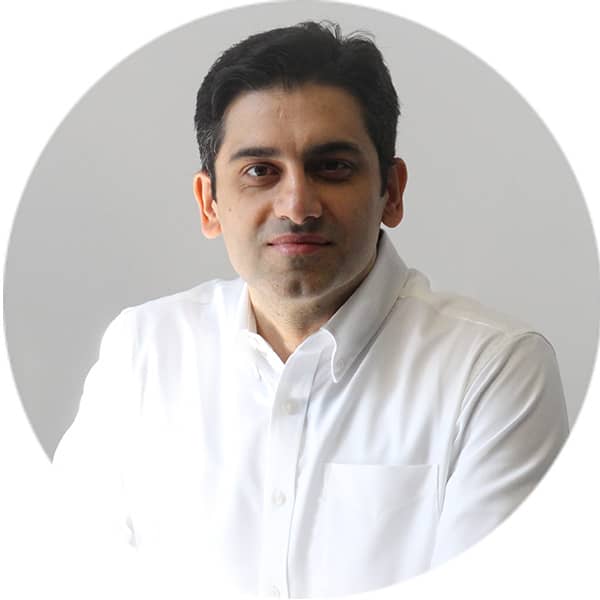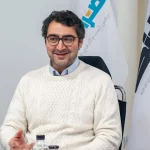Alireza Sheikh, the CEO of DarmanKala, believes that over the years, there has been a gradual increase in restrictions on the supply of medical goods. Lawmakers have made it more difficult for those in the field of online supply and sales of medical equipment by formulating and implementing various supply restrictions.
According to IDEA, the government has made it increasingly difficult by formulating and implementing various supply restrictions for those involved in the online supply and sales of medical equipment. This is happening at a time when the supply of these goods online, in a transparent manner, not only meets the needs of urban residents but also fulfills the needs of parts of the country that do not have direct access to medical equipment supply sources. In the first part of the fifth season, we have had a conversation with Alireza Sheikh, the CEO of DarmanKala.
Sheikh divides the electronic health market into two categories: “Goods” and “Services and Consultation”. He says, “Our goods section is divided into five main categories of medical goods, dietary supplements, hygiene cosmetics, health foods, and ultimately medication. These five main categories cover the field of health and treatment goods, and DarmanKala is active in all of these categories except supplements and drugs. We started with medical equipment and supplies in 2012, then entered the field of cosmetic and hygiene products, and added health foods to our range of activities about four years ago. Gradually, we expanded the scope of our activities.
The restrictions gradually increased
Sheikh talks about the complexities and challenges that online health platforms and drug sales have faced in recent years: “From the beginning, this path was complex and challenging, but over time, the restrictions increased. Initially, there were no legal regulations for these matters. There were no prohibitions, but there were also no specific laws. We started with simpler products like pillows and quilts, and then moved on to medical phones, dental care tools, and so on.
He continues: “In the early stages, we conducted the necessary negotiations with the authorities of that time and asked them to help us legalize this path. This happened, and they authorized about 40 product categories, but after that, this list was no longer updated. In any case, the E-commerce Law is new for Iranians, and it is natural that the areas of its operation are also unfamiliar to legislators.
Sheikh adds: “We were among the first to enter the digital health field, and it is natural that there would be more discussions and differences of opinion between us and other sectors. I remember that the first year we started our activities, the Trust Seal (eNAMAD) had just begun, and we were among the first 20 companies to obtain it. We wanted everything to be legal and licensed. We went through the process of obtaining technical permits, technical supervision, and so on. It was a gray area, and we didn’t want to engage in anything illegal or unethical.
The problem of multiple licenses
The CEO of DarmanKala also talks about the multiplicity of licenses in their field and says, “The number of licenses for activities like ours is high. eNAMAD and I-Med (a specialized license from the Medical Equipment Office) are among the key licenses. In addition, there is the system of supervising the Ministry of Culture and Islamic Guidance, which is responsible for monitoring images, videos, and multimedia data. The union of virtual businesses also issues a mandatory license. These four were the main ones.
Sheikh continues: “Although this year they announced a unified portal as a unified gateway for licenses, it also has its own delays and problems. It took three months to renew our union license, and we were able to update our expired license. Of course, I-Med is not included in the national gateway of licenses. Trust Seal and regulation are separate, and the union license is only for professional identity. We have to have our licenses so that in case of necessity, we have documents to prove our activities.
On the path to becoming a platform
Sheikh explains the type of activities that DarmanKala is engaged in: “In fact, we are a platform and a marketplace, but due to the limitations that existed until a month ago regarding the marketplace, we had to do everything in an integrated manner within our own company. From warehousing to logistics, procurement, and so on. This has imposed a high cost on us. Our warehouse is currently under the supervision of the Medical Sciences Organization, and the oversight organization has full control over our warehouses. However, according to the recent decision of the Legal Deputy of the President, there is no difference between the marketplace and the online store in the eyes of the legislator, but we have taken on responsibilities as a platform, and we must accept the issues that the supervisor is sensitive to.
We don’t even list medical products on our site if they don’t have an I-Med license from the Medical Equipment Office. We handle matters more carefully ourselves. But in general, we have plans to become a marketplace and are developing and negotiating with pharmacies and medical equipment suppliers to be able to use the facilities of the platform. In fact, platform facilities take pressure off businesses.
He continues: “We also have plans to cooperate with pharmacies, and according to the recent decision, we will now be able to offer OTC (Over-The-Counter) drugs. This decision covers supplements and OTC drugs, and we are pleased that the legislator has gone this far. I consider this a positive event and find it effective. Just taking this step in the e-commerce market is a major transformation, and I am pleased that Teta has achieved results after a year. In fact, e-commerce facilities bring convenience to consumers.
According to Sheikh, this decision and e-commerce, in general, provide suitable facilities for people living outside the capital. He mentions that the ratio of customers from Tehran to non-Tehran in DarmanKala is about 50-50 and says, “The benefits of e-commerce are greater for non-Tehran residents because Tehran has more facilities, and the more specialized a product is, the harder it is for residents of other cities to access it. We currently deliver products through the post office, and we deliver to all of Iran.
Sheikh also commented on the statements of the Minister of Health regarding not allowing the sale of medicines to online couriers. He said, ‘What is the real difference between traditional couriers and online couriers? Making such a clear distinction between offline and online does not solve the problem; it only complicates things further. We should make use of online facilities because the online space is transparent, and we can use its capabilities for better monitoring of conditions so that consumers and the ecosystem can benefit from it. There should be no distinction between physical and online spaces.
Digital health platforms provided valuable services to the country and society during the COVID-19 pandemic, and DarmanKala saw a growth of about three times during that period. There was an opening for the online sector during that time, but now there are more strict regulations affecting the players in this field, and the Ministry of Health needs to redefine its processes in this area.




No Comment! Be the first one.